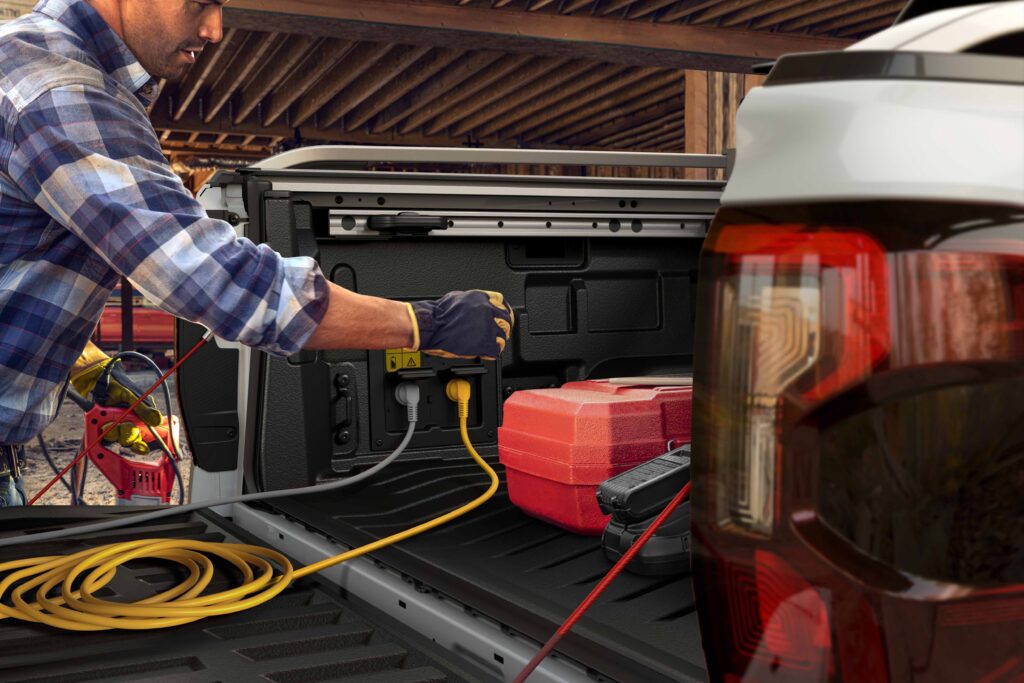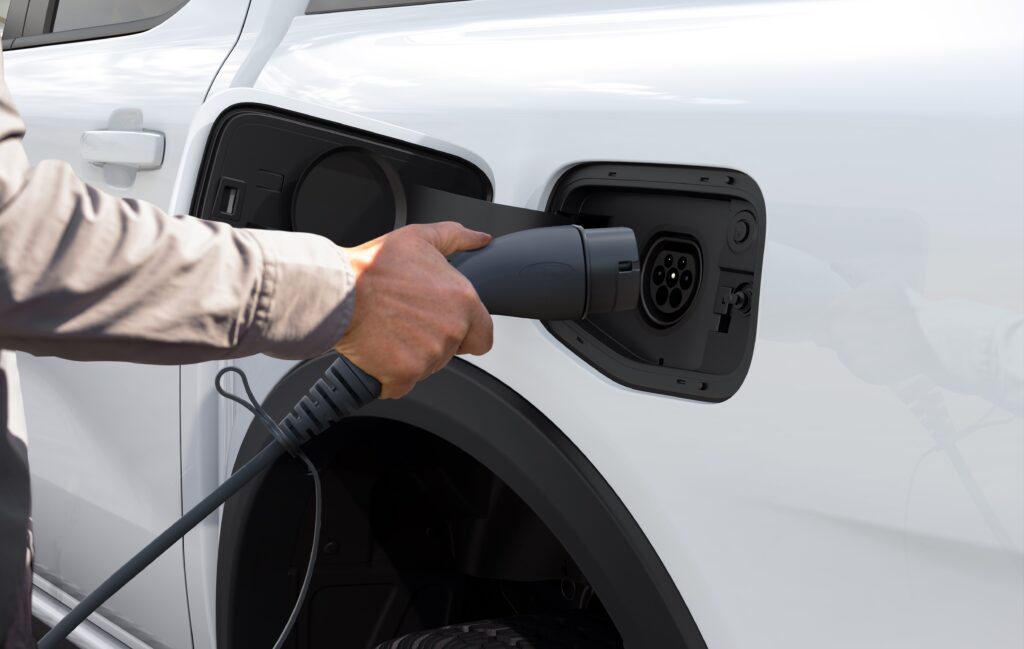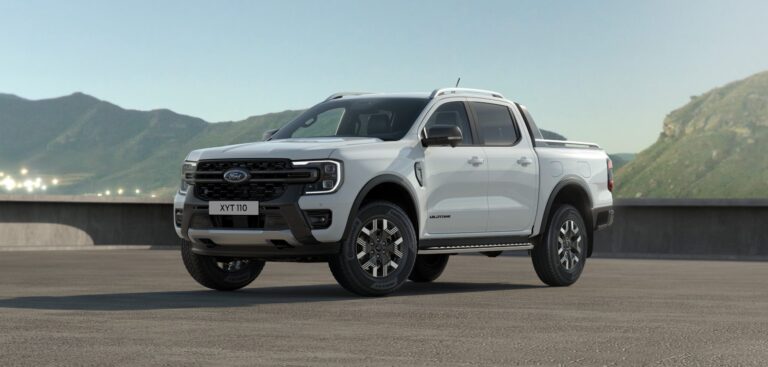Ford has announced it will produce a plug-in hybrid version of its Ranger pickup truck from late 2024 with deliveries to customers in global markets commencing early in 2025.
It is keeping many of the details quiet until closer to the start of production but Ford has confirmed that it will combine an electric motor with its 2.3-liter EcoBoost petrol engine. This will not only give it more torque than any other Ranger model but also enable it to travel up to 28 miles (45km) using purely electric power. It will retain the same maximum braked towing capacity of other Ranger models at 3,500kg.
“The Ranger plug-in hybrid will help customers step forward into an electrified future, with more confidence and capability than ever before, while keeping Ranger at the forefront of innovation and leadership in the mid-size pickup truck segment,” said Hans Schep, general manager, Ford Pro, Europe.
Electrifying the Ranger also enables Ford to include Pro Power Onboard, a system to power high-draw power tools and appliances on a worksite or remote campsite by plugging them into power outlets embedded in both the cargo bed and the cabin.

In addition to having on-demand electricity, the Ranger plug-in hybrid’s EV drive modes will provide flexibility in deciding how and when to use the EV battery power.
“Our customers want electrified vehicles that deliver strong performance and affordable cost of ownership without compromising what they love about their truck,” Schep said. “The Ranger plug-in hybrid is a best-of-both-worlds solution for work, play and family – offering customers zero-tailpipe emission EV driving for short trips, or hybrid performance that delivers incredible off-road, payload and towing capabilities. And, with Pro Power Onboard for the first time, Ranger owners can power their worksites and campsites easily.”
With the Ranger sharing a platform with the Volkswagen Amarok pickup, it is likely that VW will make an announcement on its electrification plans for the Amarok. VW has already said it will electrify its pickup from 2025 but has not confirmed if it will prioritize a battery-electric version rather than a PHEV.



